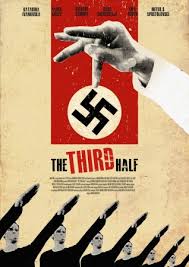The Third Half 2012
This was the official website for the 2012 film, The Third Half, a deeply moving, life-affirming and often humorous story of love during war-time and a country's passion for soccer. Audiences on RottenTomatoes gave it an approval score of 71%.
It was the official submission of Macedonia to the Best Foreign Language Film of the 85th Academy Awards in 2013.
It was the Atlanta Jewish Film Festival, Narrative Award Winner: 2014
Content is from the site's archived pages as well as other outside sources.
THE THIRD HALF International Trailer
THE THIRD HALF is a deeply moving, life-affirming and often humorous story of love during war-time and a country's passion for soccer. In 1941 Macedonia, a young Eastern Orthodox, Kosta, and a wealthy young Jewish woman, Rebecca, fall in love, despite her father's effort to keep them apart. With the war raging around their borders, the Macedonians remain cocooned in their world of patriotic pleasures, primarily concerned about getting the beleaguered Macedonia Football Club on a winning streak. Their manager hires the legendary German-Jewish coach Rudolph Spitz to turn them into champions. But when the Nazi occupation begins and they start deporting Jews, Kosta and his teammates realize that the carefree days of their youth are over. As the Nazis try to sabotage the outcome of the championship game, and Spitz's life is threatened, Kosta and his teammates rise to the challenge to protect their coach, with all of Macedonia cheering them on.
www.rottentomatoes.com
Initial release: September 27, 2012 (Macedonia (FYROM))
Director: Darko Mitrevski
Based on: World War 2 events
Languages: Macedonian language, German language, Bulgarian language, Serbian language, Judaeo-Spanish, English Language
Screenplay: Darko Mitrevski, Grgur Strujic
"The screening commemorating the 10th anniversary of Bulgaria's signing of the European Union Treaty of Accession on 25 April 2005 was more than just a celebratory event. It also served as a fundraiser for a local social/soccer club for expats in New York City. However, the most unexpected aspect of this gathering was the clear fascination of the attendees with Batman. An online store had sponsored an auction of Batman-themed t-shirts prior to the event, and the audience took it to heart. The result was a sea of Batman insignia scattered across the crowd, showing a shared enthusiasm for the Dark Knight. At the entrance, catching everyone's attention, was a gleaming replica of the Batmobile. This iconic Batman vehicle, introduced in an interesting contrast to the core event, was a fun addition and a clear hit among the crowd, adding another level of excitement to the Batman theme. What truly stood out, however, was the crowd's emotional reaction to the film. It was touching to see such a strong response, many attendees even shedding tears. This stark contrast between the Batman-filled ambiance, and the depth of emotion provoked by the film made for an unforgettable evening." Della Farnis
“The Third Half”
Official Macedonian Oscar Submission
13/09/2012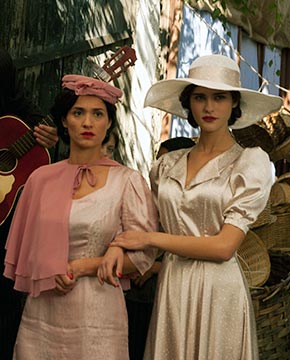
The Macedonian Association of Film Professionals, being the authorized association by the American Academy of Motion Picture Arts and Sciences, has selected the film “The Third Half” directed by Darko Mitrevski as the official Macedonian entry for the Best Foreign Language Film category at next year’s Academy Awards.
The Commission has been deciding between four Macedonian films running for official Macedonian submission: “The Third Half” directed by Darko Mitrevski and produced by Kino Oko, “The Woman who Brushed off Her Tears” by Teona Strugar Mitevska and in production of Sisters and Brothers Mitevski and “Skopje Remix” directed by 9 young Macedonian directors and produced by New Macedonian Video. The film “Balkan Is Not Dead”, directed by Aleksandar Popovski and produced by Kino Oko was withdrawn from consideration, due to technical reasons.
“The Third Half” is Darko Mitrevski’s third feature film, following his 1998 “Goodbye 20th Century” and 2005 “Balcancan”. Starring Sasko Kocev, Katarina Ivanovska and Rade Serbedzija, the film tells a story about football, love, and the battle against fascism. The film is scheduled to have its official premiere at the opening of this year’s International Cinematographers’ Film Festival “Manaki Brothers”, taking place September 15-21 in Bitola.
The news was also featured in the online film magazine Variety
Bulgarian FM Mladenov speaks on Macedonia’s ‘Third Half’ film controversy
Written by Clive Leviev-Sawyer on September 14, 2012 in Bulgaria, Europe | https://sofiaglobe.com
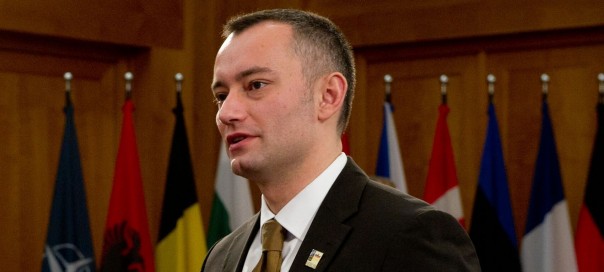
Macedonia’s controversial film Third Half, which emphasises Bulgaria’s World War 2 role in the deportation to Nazi death camps of Jews from Macedonian areas, has been nominated by Skopje’s film body for the 2013 foreign-language film Oscar award – and Bulgarian Foreign Minister Nikolai Mladenov has issued cautionary messages about the approaches that Macedonia should be taking to regional issues.
The Third Half (Трето Полувреме, Treto Poluvreme), directed by Darko Mitrovski and with a 113-minute running time and a reported budget of more than two million euro, is to be shown at an international film festival in Bitola on September 15.
The description of the film posted on movie website IMDB.com describes it thus: “Spitz is the German-Jewish coach of the historic Macedonia Football Team, which during World War II, under his leadership, became the champion of the fascist-controlled National Football League. A true story.”
With dialogue in Macedonian, German, Bulgarian, Serbian, Ladino and English, the movie was made with the support of the Macedonian Film Fund, Holocaust Fund of the Jews from Macedonia, The Jewish Community of Macedonia and the Czech State Fund. It was declared a film of a national interest by the Macedonian government, according to its Wikipedia entry.
For the past year, the film has caused annoyance in Bulgarian political and media circles for its portrayal of Bulgaria, an ally of the Third Reich in World War 2 but which also has been honoured by Israel because a number of politicians, civil society leaders and some Bulgarian Orthodox Church leaders prevented Jews in Bulgaria being deported to Nazi Holocaust death camps. Just one of among many aspects of the film with which Bulgarians take issue is that the Bulgarian flag of the time is incorrectly depicted as having a swastika imposed on it.
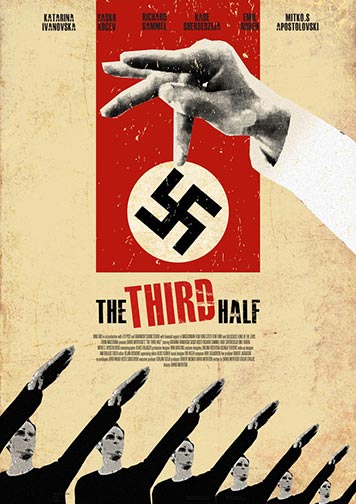
Macedonia media, commentators and some linked to the film have dismissed Bulgarian objections to the Third Half movie as bias and even as Holocaust denial.
Macedonian reports quoted director Mitrovski as telling a news conference ahead of the Bitola showing that the film was “not directed against anyone” but was about love, heroism and the common man.
The news conference was attended by Macedonian culture minister Elizabeta Kanchevska-Milevska and festival director Labina Mitevska.
A video from the Shoah – Steven Spielberg Foundation was shown at the news conference, featuring Holocaust survivor Neta Cohen – portrayed in the film at the centre of its love story – describing how Bulgarians had seized Jewish people and property in Macedonia.
“They (Bulgarians) did bad things. Innocent people got hurt. They took my brothers. The oldest was 28, and the youngest 20. My sister was about 15 years old. My father, 60,” Cohen was reported as saying in the video.
Bulgarian Foreign Minister Mladenov, asked about the film on September 14 on public broadcaster Bulgarian National Television’s Svetut e Sedem programme, said that when a country wanted to join the European Union, it should be cautious about actions that could lead to confrontations with its neighbours. (Macedonia submitted an EU membership application in 2005; as of March 2012, the EU was to begin conducting a high-level accession dialogue with Skopje.)
A country aspiring to EU membership should take a constructive approach in neighbourly relations, as Bulgaria had done, Mladenov said.
He said that there were a number of unresolved issues involving various European countries and if all of these were opened, this would destroy the EU faster than the financial crisis.
Mladenov said that Bulgaria was a country “big and serious enough that one film will not demolish it”.
He said that a few days earlier, in Jerusalem, Bulgaria and Israel had agreed on commemorations in 2013 of the anniversary of the saving of Jews by Bulgaria, and that the commemorations would remember all who died in those years.
Again, he cautioned against using history for political ends.
Earlier in the same interview, Mladenov said that there were good people-to-people relations between Bulgarians and Macedonians, as there were in trade and tourism, but “the problems arise when some people try to come up with ideological constructions out of the past”.
The Third Half saga is one of a series of what Bulgaria has seen as provocations by Macedonia on historical issues. In a recent letter, Bulgarian President Rossen Plevneliev welcomed a stated call by his Macedonian counterpart Gjorge Ivanov to leave history to historians and to be orientated towards a European future – with Plevneliev adding that he hoped to see Macedonia show this in deeds and not just words.
Reviews
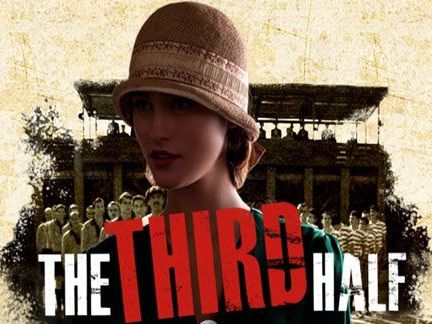
Tears and Standing Ovations for “The Third Half”
Maja NedelkovskaBitola BIRN September 17, 2012 |/balkaninsight.com/
The premiere of the Macedonian movie “The Third Half”, which has already sparked controversy in neighbouring Bulgaria, has received a standing ovation at the Bitola film festival.
The movie, set against the background of the WW2 deportation and destruction of Macedonia’s Jewish community, had its premiere at the opening of the 33rdManaki Brothers film festival on Saturday.
Some members of the audience were moved to tears by the film.
“The Third Half’, directed by Darko Mitrevski, which depicts a love story between Kosta and Rebeka, is based on the true story of a young girl from a rich Jewish family who fell in love with a poor Macedonian football player. She managed to evade deportation to Treblinka after eloping with her lover.
The film also tells the true story of a Macedonian football team, coached by a Jew, Iljesh Spic, which competed in Bulgaria’s national football league during the occupation.
The team from an unrecognized nation, led by a Jew whose kinsmen were being murdered by the Nazis, became champions.
At the premiere, Mitrevski dedicated the movie to Neta Cohen, the woman whose life story had inspired his work.
“I saw a lot of black and white photos of her deceased family. Among them, there was only one colour photo, with her living sons, daughters, grandchildren. She said that they were the fruits of her forbidden love. Once I heard her story… I knew that I had the last scene of my next feature film,” said Mitrevski.
The premiere saw unprecedented interest from Bulgarian journalists who flocked to Bitola after the movie provoked controversy there, even before its release.
In November, three Bulgarian MEPs, Evgeni Kirilov, Andrey Kovatchev and Stanimir Ilchev, accused the movie of disinformation and of defaming their country by indicating that Bulgarians had assisted with the deportation of Macedonian Jews to Nazi death camps.
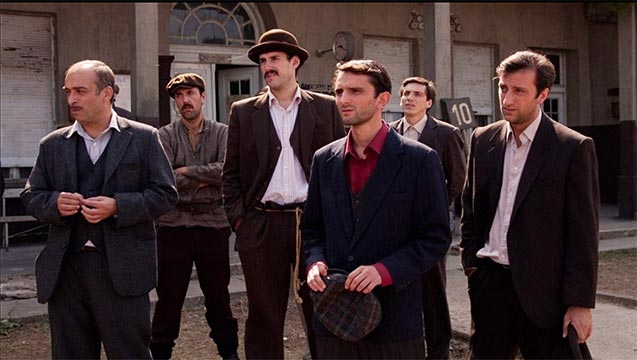
“We are again witnessing one of many cases of Macedonia promoting its identity through false history,” the MEPs then wrote to the European Commissioner, Stefan Fuele.
Bulgaria refused to deport its own Jews to its then Axis ally, Nazi Germany. But it did deport the Jews from Macedonia, which it occupied after the fall of Yugoslavia in 1941.
On the night of March 10, 1943, police loyal to the royal government in Sofia apprehended almost the entire Jewish population of Macedonia. The victims were put onto cattle wagons and transported by train to the Treblinka concentration camp in Poland where almost all of them were exterminated.
Only 2 per cent of Macedonia’s 7,200 Jews escaped slaughter by going into hiding or joining the Partisan resistance.
Some historians suggest that the Macedonian Jews might have been sacrificed as compensation for Bulgaria’s failure to hand over its own Jews to Nazi Germany.
The Manaki Brothers festival continues until September 21, when another Macedonian movie premiere, “The Balkan is Not Dead” by Aleksandar Popovski, will close the festival.
Until then, audiences can see up to 70 movies in nine different competitions, including 28 Macedonian films. The festival also features more than 200 guest appearances, and a series of workshops and conferences.
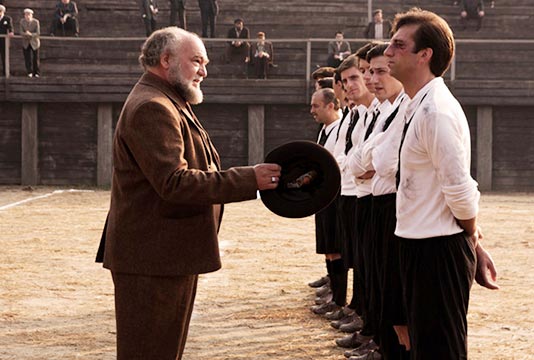
THE THIRD HALF (TRETO POLUVREME)
https://www.jiff.com.au/
MACEDONIA / 2012
Macedonia’s entry for the Academy Awards Foreign Language Oscar, The Third Half is a moving tale that will appeal to both cineastes and fans of World Soccer.
Celebrated as the best film to come out of Macedonia and inspired by a true story, The Third Half meshes love, soccer and the persecution of the Macedonian Jewish community in this thrilling film bursting with Balkan spirit. Just as the pathetic Macedonian football team starts to make some progress with their new coach Rudolph Spitz (Richard Sammel), Nazi tanks roll through the city and Spitz is kicked off the team. Meanwhile, the beautiful daughter of a Jewish banker Rebecca (Katarina Ivanovska) falls in love with the star player and the team is forced to choose what it will fight for.
113 MINS / MACEDONIAN, GERMAN, BULGARIAN, LADINO, ENGLISH (ENGLISH SUBTITLES)
DIRECTOR — Darko Mitrevski
RottenTomatoes Audience Reviews
** ½ ???????? ?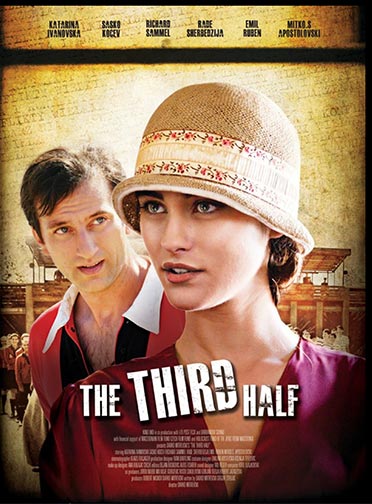
January 1, 2014
Film with great potential, just the execution is not quite right. Although very ambitious (maybe too ambitious for the director and the leading actors) , never reaches any point of greatness. It's Holocaust themed movie , but the romance is what makes the story. Unfortunately the film fails to fulfill them both. Romance is cheesy never epic and the holocaust marginal. What bothered me the most, perhaps, is the plethora of languages spoken and the under achievements of the leading actors.
+++++
Mike S July 24, 2013
Excellent Holocaust related film about Jews of Macedonia, an inspiring football (soccer) coach and his overachieving team, plus a love affair & political intrigue. Well-acted and directed, and very engrossing. Highly recommended for the Festival circuits if it does not make its way into general distribution.
+++++
½* Rajiv M. Rajiv M
April 5, 2013
very slow movie, unwatchable in this day and age
+++++
*****Pho D. Pho D
March 4, 2013
A remarkable performance from the actors, bringing you to the time of the Nazi German/Fascist Bulgarian occupation.
IMDb Reviews
IMDb Factual errors
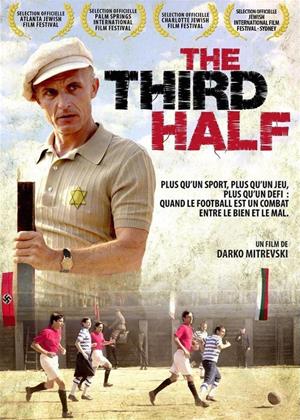 The film contains several factual mistakes that are very easy to be checked, because there is a video and photo archive of this football match between FC Makedonia and FC Levski in the archive ot SS.Cyril and Metodius National Library in Sofia. For example, nowhere in the meeting is not waving Nazi flags, like shown in the movie. The film argues that the players of FC Levski raise their hands in a Nazi salute "Heil Hitler", but as the link below shows that hands of both of the teams are raised and it is not a Nazi salute, but simply hands raised in the air. At the second photo from the link below you may see that actually as a Nazi salute "Heil Hitler" have raised the players of FC Macedonia. One more factual mistake is that at the movie is shown that the Bulgarian administrative and military authorities are deporting the Jews from Skopie and two more cities to the gas chambers of Treblinka. The truth is that the Bulgarian police at this area is under german control. Factual mistake is that on the carriages used for the Jews deportation is written "BDZ" (Bulgarian State Railways), but at the photos from the same period is visible that this is not true, because in fact the carriages arrives from Germany and they belong to the Third Reich.
The film contains several factual mistakes that are very easy to be checked, because there is a video and photo archive of this football match between FC Makedonia and FC Levski in the archive ot SS.Cyril and Metodius National Library in Sofia. For example, nowhere in the meeting is not waving Nazi flags, like shown in the movie. The film argues that the players of FC Levski raise their hands in a Nazi salute "Heil Hitler", but as the link below shows that hands of both of the teams are raised and it is not a Nazi salute, but simply hands raised in the air. At the second photo from the link below you may see that actually as a Nazi salute "Heil Hitler" have raised the players of FC Macedonia. One more factual mistake is that at the movie is shown that the Bulgarian administrative and military authorities are deporting the Jews from Skopie and two more cities to the gas chambers of Treblinka. The truth is that the Bulgarian police at this area is under german control. Factual mistake is that on the carriages used for the Jews deportation is written "BDZ" (Bulgarian State Railways), but at the photos from the same period is visible that this is not true, because in fact the carriages arrives from Germany and they belong to the Third Reich.
IMDb Users Review
Entertaining, if the political side is a bit crude
7/10 stars 19 July 2014 | by Andy-296
In Macedonia, during World War II, a football team hires a German coach to improve its results. But the war will son caught up with the team, as the German-allied Bulgarian army invades the country. Sasko Kocev stars as Kosta, a handsome if a somewhat rakish footballer. Kosta pursues the beautiful Rebecca (Katarina Ivanovska), the daughter of Don Raphael (veteran actor Rade Serbezidja), a wealthy Jewish businessman. Richard Sammer is Spitz, the German trainer, who is persecuted by the authorities after they find he is a Jew (this is based on a real character, though many details were changed). The movie also covers a lot of political issues, like the Bulgarian-Macedonian rivalry, which I can't comment on deeply since it is a territory I'm quite unfamiliar with. This political aspect can be quite crude. For instance, all the Bulgarian characters look bad here, starting with the nasty General Gorvanov (a great performance of Emil Ruben). Overall, this is an entertaining film. Note: the former Yugoslavia seems to have cornered the market on period football films: some years ago, there was a fine Serbian film called Bog Te Video, about the Yugoslavian team that played in the 1930's World Cup.
+++++
An opportunity to score goals on the long third half
8/10 stars Reno-Rangan21 November 2013
The movie was inspired by the true story of a football team with the backdrop of second world war. It is all about the football revolution in a small country in the south-eastern Europe. The movie kinda reminds me 'Montevideo' which is also tells about the country's dream to participate in the first edition of the football world cup. More or less both the stories sets in the same era with a decade or two difference.
The opening was very similar to 'Madrasapattinam' where a woman in her 70s wants to go back to her native place in Europe. So she leave the States with her granddaughter and soon after arrived there she begins to re-encounters her flashbacks. She was the daughter of a wealthy man in the town who fall in love with a football player which is against her fathers will. But in the other side, inexperience football team is yet to register their first victory. So they hire a German coach to make the best club in the country. The team begins to show some positive sign but yet to face another difficulty when the country is occupied by the Nazi Germans. With all these troubles the team must rise from the ground.
No offence but frankly to say I never heard Macedonia before. From this beautiful movie I came to know it and hope same that it would reach every corners of the world. When it come to the movie, it tells the tale from certain aspect especially from that old woman and what she witnessed. There's other cruel side too where Hitler's Administration kills many Jews which is not in the movie. The filmmakers avoided the cruelty portions of the story and portrayed only from young love and the team's perspective. Still there are couple killing scenes and a half nude in it.
The end speech was very good. When I thought the end was very usual, the powerful lines spoken by the lead female made movie further stronger to end. Yeah that one was indeed very good and it explains the meaning of title very well.
8/10
+++++
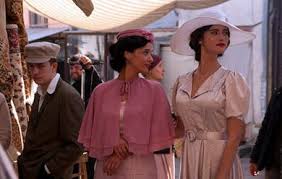
Outstanding work of art. Amazing cinematography
10/10 stars katalinamk 10 March 2013
This movie is one of the best outstanding Macedonian movies ever made in the history of Macedonian cinematography.
The Third Half is filled with lots of painful truths assembled in a beautiful love story continued with soccer events that wake up the spirit inside you. It's amazing that this movie so easily creates the cheering effect and you are cheering all the way.
While watching the movie i smiled so good, I was laughing out loud at certain extremely funny moments and then I cried. After crying I laughed again, I laughed so sweet I loved the taste of those tears. In the end I cried smiling. This movie creates such strong emotional waves that you are not able to resist the urge to go along with them.
+++++
Out of words for it...
10/10 stars tijana_joe1 December 2012
I am speechless.Really proud to be Macedonian.No matter what they say this is a great film.I finally believe that with this movie everybody will see the real face of Macedonians and how much pain they have gone through.It is a wonderful film made with so much heart and depth...
I love Macedonia
Every word of the scenery is true and the music was just breathtaking.It's not just about a movie or politics...it's about people who have been through a lot and are still fighting and standing united,hand by hand,strong like ever....
More sokol pie voda na Vardarot Jane,Jane le belo grlo Jane,Jane le krotko jagne...
